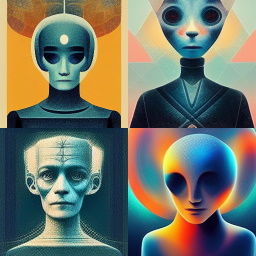home
previous archive
September 1. I recently noticed that my favorite Bible verse is basically the same as my favorite song verse. From Ecclesiastes 9:7, "Go thy way, eat thy bread with joy, and drink thy wine with a merry heart; for God now accepteth thy works." And from Big Blood's Go See Boats, "You've got some fun, speak your own. Creation without us untying to your bone. Promise in this day time, do your things."
September 5. For Labor Day, I'm thinking about the word "work". One definition is very broad. Work doesn't have to be productive, because Sisyphus rolling a rock up a hill, that always rolls back down, is doing work. It doesn't have to be physical, because chess players thinking about their next move are doing work (and burning a lot of calories). Even meditation could be called work, when the literal intructions are to do nothing.
Another definition is narrow: in the context of a society where tokens are exchanged for goods and services, you're doing a service in exchange for some of these tokens. If you're reading an article about "work", this is usually what they mean, and if you practice reading "work" as "work for money", you'll see the subject more clearly.
Humans like to do stuff. But as a means for arranging the stuff we do, wage labor has only been common for a few hundred years. It is now in decline for multiple reasons, but the main one is that it's failing to satisfy our need for meaning, for our actions to be part of something larger that we believe in. We no longer believe that doing wage labor with more intensity (working hard) will make us rich. Employers are openly calling workers "resources" in their quest for higher stock prices.
In response, the phrase "work-life balance" frames wage labor in opposition to life. Back in 2004, when I wrote "How To Drop Out", people would say, what would happen if everyone dropped out? That's basically happening now. When I go to the drug store, and half the shelves are empty, I can't complain, because filling those shelves requires a long string of shitty jobs.
It's anyone's guess how it will all shake out. I like to think we're still in the early stages of figuring out how to run an ethical society. For the last few hundred years, the organizing principle of people doing things has been how much money can be made by people doing things, where money is the power to make people do things they would not do except for the money. In a better society, the organizing principle of people doing things is what people enjoy doing.
September 7.  Last week there was a cool post on the Psychonaut subreddit. The images on the right were generated by an AI, from this Terence McKenna quote:
Last week there was a cool post on the Psychonaut subreddit. The images on the right were generated by an AI, from this Terence McKenna quote:
This AI that is coming into existence is, to my mind, not artificial at all, not alien at all. What it really is, is: it's a new conformational geometry of the collective Self of humanity.
Now, I don't know what "conformational geometry" means. It sounds like a fancy way of saying form or shape. But I think he's right. The best way to think about AI, is to think of it as human. AI will never go rogue, or "become sentient". It will always do exactly what humans tell it to do -- which will never be quite what we want it to do, and increasingly, not what we expect. But it remains fundamentally an extension of our own story.
Meanwhile, here's a comment thread on the Seattle subreddit about something that's actually non-human, the intelligence of crows.
They see humans give other humans things and get food in return, but don't quite equate that only specific things count. I've seen them try to feed leaves and bits of paper to a vending machine before in hopes of persuading it to give up snacks.